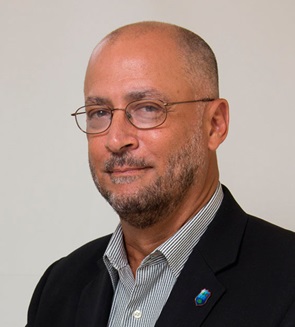BRIDGETOWN, Barbados, CMC – Two Caribbean prime ministers previously critical of Dave Cameron’s leadership of Cricket West Indies have welcomed the election of Ricky Skerritt as the new president of the regional governing body.
Grenada’s Dr Keith Mitchell said Skerritt, and new vice-president Dr Kishore Shallow, would “lift the spirits of Caribbean people” while Trinidad and Tobago’s Dr Keith Rowley said he now hoped that “a door to far-reaching progressive change is now open”.
Skerritt, a former St Kitts and Nevis government minister, and Shallow, an IT consultant and president of the St Vincent and the Grenadines Cricket Association, toppled three-term incumbents Cameron and vice-president Emmanuel Nathan by 8-4 margins at elections during Sunday’s annual general meeting in Jamaica.
“This result will bring great joy and happiness to cricket lovers throughout the world, not just in the West Indies,” said Mitchell in a statement Monday.

“The election of Mr. Skerritt’s team will lift the spirits of the Caribbean people and give them new hope and a greater expectation for the revival and rebirth of West Indies cricket.
“I also want to congratulate the Skerritt team for running a clean and effective campaign in which they consistently highlighted their agenda for change, their vision for the future of West Indies cricket and their ten-point plan for making that vision a reality.”
Under Cameron, CWI maintained an acrimonious relationship with CARICOM governments, especially after rejecting their attempted intervention to initiate governance reforms through the Patterson and Barriteau Reports.
Mitchell, a former chairman of CARICOM’s sub-committee, remained a strident critic of Cameron and as recently as January said that as “far as [Cameron’s] management style of West Indies cricket [is concerned], I don’t have a lot of respect for it”.
The veteran leader said he was especially pleased with Skerritt’s recognition of the need for partnership with the stakeholder community in pursuit of cricket development.
“I must especially commend Mr. Skerritt for requesting that stakeholders share responsibility for his strategy and become co-owners of his agenda for change,” Mitchell continued.
“I believe that CARICOM Governments will honour these requests and do all in their power to promote harmonious and cooperative relationships between the board and all stakeholders, for the common good of the game and the region.
“I wish the new leadership team all the best for the future and stand ready to help in any way I possibly can. My interest has always been on the success of West Indies cricket and not on personalities, and that will continue to be my guiding principle.”
Rowley, meanwhile, who in the past charged that West Indies cricket had been “hijacked by a small clique of people … hell bent on destroying Caribbean cricket”, now also exuded optimism.
“I am pleased to hope that a door to far-reaching progressive change is now open. This holds out the prospect for the effecting of the much-needed restructuring of the management of the regional game with some sense of purpose and urgency,” Rowley pointed out.
“My regional colleagues and I look forward to early contact with the new President, Ricky Skerritt and his team and to pick up our effort from where it was derailed from the Patterson/Barriteau work onto a new road which recognises ‘West Indies Cricket’ as a ‘public good’, a heritage of all West Indian citizens, to be honoured, nurtured and managed sustainably by the widest effective participation by Caribbean people using proven best practice methods.”
Rowley also urged the convening of a conference to urgently address the way forward.
“I have already called for a two-day colloquium to be hosted by one of our territories with the fullest participation of all stakeholders with a view to approving an immediate action plan to construct the new Road Ahead for West Indies cricket from kindergarten to the halls of fame.”





